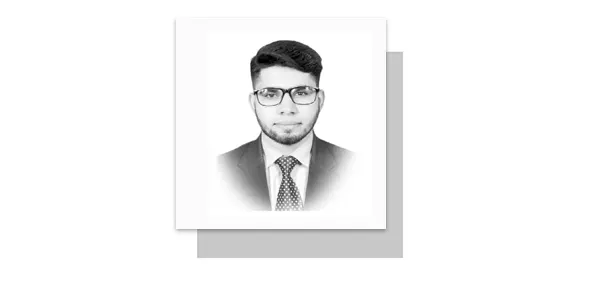Does our society have a reliable system for upholding justice?
MODERN democratic societies place a strong emphasis on the “rule of law.” It implies that the rule of law must be upheld by all parties, including the government and that justice will be served fairly. Recent occurrences, though, have cast doubt on the validity of this principle. The absence of consistency in its application is the first factor that leads some people to doubt the reliability of the rule of law. However, because laws are not always applied equally to all parties, justice is not always upheld. Because of their position, resources, or connections, some people might be given preference. People may lose faith in the legal system as a result of this inconsistency and begin to doubt the reliability of the rule of law.
The rule of law, regrettably, is an unattainable myth in many countries, including Pakistan. Human rights abuses, political unrest and corruption have plagued Pakistan for a very long time. The legal structure of the nation is complicated, involving a judiciary that is frequently swayed by political pressure and multiple sources of law. Although Pakistan’s Constitution upholds the rule of law, the legal system there frequently acts arbitrarily and inconsistently. At every level of the government and society, from the police to the judiciary, corruption is rife. Public trust in the legal system can be damaged by corruption which also threatens its integrity.
However, officials weaken the rule when they abuse their position for selfish gain or to advance their interests. Bribery, nepotism and theft are just a few examples of the various ways corruption manifests. Therefore, this means that the wealthy and powerful can frequently sway the legal system to their benefit, while those who are poor and marginalized are denied access to justice. This has made it challenging for common people to access justice because they might not have the money to bribe officials or pay for pricey attorneys. Many Pakistanis lack faith in the legal system as a result of its inability to provide justice.
There have been initiatives to combat corruption and reform the legal system in recent years. Some of the actions taken to combat corruption include the establishment of national accountability bureaus and the creation of specialized anti-corruption courts. Additionally, by offering legal aid to underprivileged and marginalized communities, the government has improved access to justice. Similarly, the influence of traditional and religious customs is another factor contributing to Pakistan’s lack of a functional legal system. Particularly when it comes to issues like gender equality and human rights, these traditions frequently run counter to the principles of the rule of law. For instance, Pakistani laws favor men and a frequently biased judiciary subjects women to discrimination in the legal system.
Contrarily, if the government disobeys court orders, holds people without charge or trial, or commits extrajudicial killings, it sends a message that the law does not apply equally to everyone. A culture of impunity can be established when the government steps in to decide who is right and wrong. However, in numerous instances states respect and uphold this law. For instance, Scandinavian countries like Norway, Denmark and Finland consistently rank among the best in the world for upholding the rule of law. These countries are characterized by strong legal frameworks, independent courts and low levels of corruption. This demonstrates that it is not an impossibly high ideal but rather a goal that is attainable with the right institutions and culture.
—The writer is contributing columnist, based in Islamabad.
Email: [email protected]










